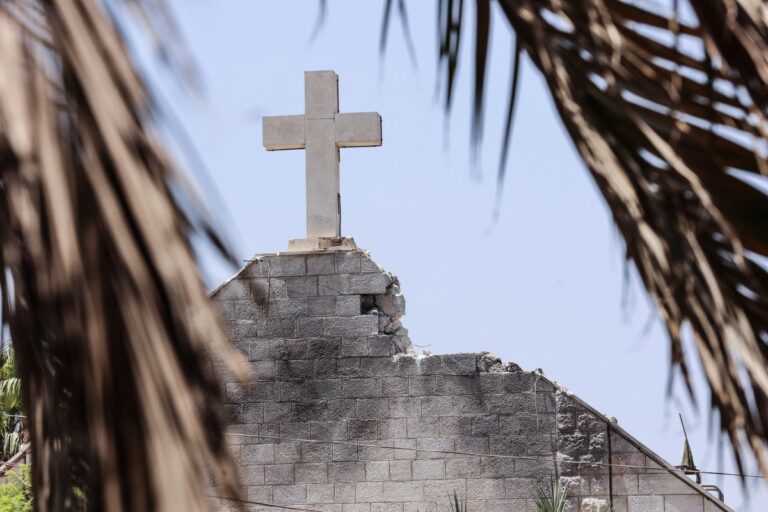Headline
UK PM Truss Unveils Non-white Top Cabinet Members
Published
3 years agoon
By
Editor
Liz Truss on Tuesday unveiled her new top team as she formally took over from Boris Johnson as UK prime minister, with no place for white men in any of the three senior-most cabinet posts for the first time ever.
As expected, she rewarded allies to her during her victorious Conservative leadership campaign, promoting Kwasi Kwarteng to finance, James Cleverly to foreign affairs and Suella Braverman to interior.
The son of Ghanaian immigrants, Kwarteng is the country’s first black chancellor of the exchequer. His immediate focus will be turning round Britain’s dire economic fortunes.
READ ALSO: buharBuhari Congratulates New UK Prime Minister
Cleverly is a mixed-race army reservist who served under Truss at the foreign office, while Braverman, whose parents are of Indian origin from Kenya and Mauritius, inherits a tricky brief from Priti Patel.
Cigar-smoking Truss loyalist, Therese Coffey, was made health secretary and deputy prime minister, Downing Street said in a slew of announcements.
Ben Wallace retained the defence ministry, with Truss vowing to extend Johnson’s staunch support for Ukraine.
– Storm clouds –
Truss – Britain’s third female prime minister and the fourth Tory premier in just six years – earlier promised sunnier days ahead despite the current economic gloom.
Heavy rain and thunder forced her supporters to scramble for cover as they waited for her to arrive in Downing Street to make her inaugural speech.
But the clouds lifted as the 47-year-old former foreign secretary’s motorcade swept in, and she vowed that the country would “ride out the storm” of double-digit inflation and soaring energy prices.
“I will take action this week to deal with energy bills and to secure our future energy supply,” she said.
“As strong as the storm may be, I know that the British people are stronger,” she added, outlining her priorities as the economy, energy and health.
Truss became Tory leader on Monday after a summer-long campaign sparked by a rebellion against Johnson in July after a series of scandals.
She arrived in Downing Street after a 1,000-mile (1,600-kilometre) round trip from London to see Queen Elizabeth II in the Scottish Highlands, where she accepted the invitation to form a government.
As soon as Thursday, Truss is expected to sanction a freeze on household energy bills to prevent steep hikes this winter, and possibly beyond, at a cost of tens of billions of pounds.
– Energy crisis –
Hard-pressed households facing 80-per cent increases in electricity and gas bills from October have demanded immediate action to prevent millions being forced to choose between heating and eating this winter.
Businesses have also warned they could be forced to close because of even steeper hikes in energy costs.
Truss, who touts herself as a free-market liberal, has promised tax cuts to stimulate growth, despite warnings that greater borrowing could make inflation worse.
The contrast to her beaten leadership rival Rishi Sunak’s more cautious approach has opened another rift in the Conservative party that was already divided by Johnson’s departure.
Recent opinion polls suggest a sizeable chunk of the British public have no faith in her ability to tackle the cost-of-living crisis.
A new poll by YouGov said only 14 percent expect Truss to do a better job than Johnson.
– Comeback? –
Johnson, whose tenure was dominated by Brexit and Covid, and cut short by the succession of scandals, earlier promised Truss his unswerving support as he made a farewell speech in Downing Street.
“I will be supporting Liz Truss and the new government every step of the way,” he said, before leaving for Balmoral to tender his resignation to the queen.
He urged the Tories to put aside their ideological differences which have seen the party fight like Downing Street’s cats and dogs over how best to tackle the energy crisis.
READ ALSO: JUST IN: Boris Johnson Resigns As British Prime Minister
But the former newspaper polemicist failed to dampen speculation that he is eyeing a potential return to the political front line.
“Like Cincinnatus, I am returning to my plough,” Johnson said. Latin scholars were quick to point out that the Roman statesman eventually returned to politics.
Johnson, 58, remains popular among grassroots Tories as a charismatic election winner who took the country out of the European Union.
Despite repeated accusations of corruption and cronyism during his tenure, and an unprecedented police fine for breaking his own lockdown rules, Johnson is said to be smarting at having to leave.
Speculation has swirled that he could bide his time for a comeback, particularly if Truss struggles to overcome the country’s many problems.
Truss has ruled out seeking her own mandate at an early general election, promising to extend the Tories’ 12 years in power from 2024.
AFP.
You may like


‘Harry Potter’ Stars Banned From Driving


Former UK PM Rishi Sunak Joins Goldman Sachs As Advisor


Hosepipe Ban Announced In Parts Of UK As Drought Hits Harder


Former NBA Player Ben McLemore Convicted Of Raping Incapacitated Woman


UK Police Charge Ex-Arsenal Midfielder Thomas Partey With Rape


US-based Lawyer Becomes First Nigerian To Travel To Space

Russian drone and bomb fire killed at least six people across Ukraine’s east and south, local authorities said Friday, as Russia resists US President Donald Trump’s call to halt its invasion.
Moscow has escalated long-range aerial attacks on Ukraine’s towns and cities as well as frontline assaults and shelling over the past weeks, defying Trump’s warning it could face massive new sanctions if no peace deal is struck.
The latest strikes killed at least three people in the Dnipropetrovsk region — an important industrial mining territory under increasing pressure from Russia’s attacks.
READ ALSO:Anxiety As Trump Gives Russia 50 Days To Make Ukraine Deal
“Administrative buildings, a shop and private houses have been damaged,” Governor Sergiy Lysak said on Telegram after a morning drone attack caused a fire to break out in the region’s Kamyanske district, where two were killed.
A 52-year-old man was killed in another drone attack elsewhere in the region.
And in the Donetsk, Kherson and Zaporizhzhia regions — all of which are partially occupied by Russian forces — attacks killed another three people.
Ukraine said Russia fired 35 long-range drones overnight — a relatively low number compared to the several hundred Moscow is capable of launching.
Moscow said it shot down 73 Ukrainian drones over its territory, including 10 it said were heading for the capital, Moscow.
AFP
Headline
Georgia Arrests Two Over Attempt To Sell Weapons-grade Uranium
Published
1 day agoon
July 17, 2025By
Editor
Georgia has arrested two men for allegedly attempting to illegally sell weapons-grade uranium, officials in the Caucasus nation said on Thursday.
Counter-intelligence and special operations units detained a Georgian and a foreign national while they were allegedly trying to sell radioactive uranium that “could be used to manufacture explosive devices or carry out terrorist attacks”, the security services said.
The two men were seeking $3.0 million for the uranium when they were arrested in the Black Sea port city of Batumi, the services said.
READ ALSO:
The “nuclear material”, described as a “radioactive chemical element emitting alpha and gamma radiation”, was deemed capable of causing mass casualties if weaponised, the agency added.
It said the plot had been “detected and neutralised at an early stage.”
The suspects face up to 10 years in prison for the illegal handling of nuclear material.
READ ALSO:
Concerns have existed for years that extremist groups could get hold of unsecured radioactive materials from countries across the former Soviet Union.
Georgia and neighbouring Armenia — both ex-Soviet states — have reported numerous cases of people trying to sell radioactive substances, including attempts to smuggle weapons-grade uranium.
AFP
Headline
Israeli Strike On Gaza’s Only Catholic Church Kills Two
Published
1 day agoon
July 17, 2025By
Editor
...I’m deeply saddened – Pope Leo XIV
An Israeli strike on Gaza’s only Catholic church killed two people on Thursday, the Latin Patriarchate of Jerusalem said, as Israel said it “never targets” religious sites and regretted any harm to civilians.
Pope Leo XIV said he was “deeply saddened” by the attack, which came as Gaza’s civil defence agency reported that Israeli strikes across the Palestinian territory killed at least 20 people.
“With deep sorrow the Latin Patriarchate can now confirm that two persons were killed as a result of an apparent strike by the Israeli army that hit the Holy Family Compound this morning.
“We pray for the rest of their souls and for the end of this barbaric war. Nothing can justify the targeting of innocent civilians,” it said in a statement.
Gaza civil defence spokesman Mahmud Bassal said “two citizens from the Christian community” were killed in an Israeli strike on the church in Gaza City, with which the late Pope Francis kept regular contact through the war.
READ ALSO:‘Netanyahu Must Go’, Israel’s Ex-PM Calls Leadership ‘Catastrophic’
AFP photographs showed the wounded being treated in a tented area at Gaza City’s Al-Ahli Hospital, also known as the Baptist Hospital, with parish priest Father Gabriel Romanelli with a bandage around his lower leg.

Christian Palestinian mourners take the body of a loved one for burial from the city’s Arab Ahli, also known as Baptist Hospital, following an earlier Israeli strike on the Holy Family Church, in Gaza City on July 17, 2025. An Israeli strike on Gaza’s only Catholic church killed two people on July 17, the Latin Patriarchate of Jerusalem said, as Israel said it “never targets” religious sites and regretted any harm to civilians. (Photo by Omar AL-QATTAA / AFP)
The patriarchate, which has jurisdiction for Catholics in Israel, the Palestinian Territories, Jordan and Cyprus, condemned the strike and said it “destroyed large parts of the complex”.
“Targeting a holy site currently sheltering approximately 600 displaced persons, the majority of whom are children and 54 with special needs, is a flagrant violation of human dignity and a blatant violation of the sanctity of life and the sanctity of religious sitses, which are supposed to provide a safe haven in times of war,” it said.
Israel expressed “deep sorrow” over the damage and civilian casualties, adding that the military was investigating.
“Israel never targets churches or religious sites and regrets any harm to a religious site or to uninvolved civilians,” the foreign ministry said on X.
– ‘Serious act’ –
Italian Prime Minister Giorgia Meloni said attacks on civilians in Gaza were “unacceptable” while her Foreign Minister Antonio Tajani called the church attack “a serious act against a Christian place of worship”.
READ ALSO:Hamas Attacks Aid Workers In Gaza, Kills Five
Out of the Gaza Strip’s population of more than two million, about 1,000 are Christians. Most of them are Orthodox but according to the Latin Patriarchate, there are about 135 Catholics in the territory.
Since the early days of the war which erupted in October 2023, members of the Catholic community have been sheltering at the Holy Family Compound in Gaza City, where some Orthodox Christians have also found refuge.
Pope Francis repeatedly called for an end to the war and in his final Easter message, a day before his death on April 21, he condemned the “deplorable humanitarian situation” in the Palestinian territory.
– ‘Totally unacceptable’ –
Monsignor Pascal Gollnisch, the head of Catholic charity l’Oeuvre d’Orient, told AFP the raid was “totally unacceptable”.
“It is a place of worship. It is a Catholic church known for its peaceful attitude, for being a peacemaker. These are people who are at the service of the population,” he said.
READ ALSO:Israeli Strikes Kill 13 In Gaza
“There was no strategic objective, there were no jihadists in this church. There were families, there were civilians. This is totally unacceptable and we condemn in the strongest possible terms this attitude on the part of Israel.”
More than 21 months of war have created dire humanitarian conditions for Gaza’s population, displacing most residents at least once and triggering severe shortages of food and other essentials.
The war was triggered by a Hamas attack on Israel, which resulted in the deaths of 1,219 people, most of them civilians, according to an AFP tally based on official figures.
Israel’s retaliatory military offensive has killed at least 58,573 Palestinians, mostly civilians, according to the health ministry in Hamas-run Gaza.
Media restrictions in Gaza and difficulties in accessing many areas mean AFP is unable to independently verify the tolls and details provided by the civil defence agency and other parties.
AFP
- [OPINION] Buhari: The Good, t The Bad, And The Terrible
- One Year, Big Impact: Otuaro’s Silent Revolution in the Niger Delta
- More Trouble At Benin GSM Village As Igbineweka Warns Ojiezele To Stop Parading Himself As Chairman
- ‘His Security Is Not Guaranteed,’ Okpehbolo Warns Obi Not To Come To Edo Without Informing Him
- US Tech CEO Caught Cheating With HR At Coldplay Concert
- Why UNIMAID Was Renamed After Buhari – Education Ministry
- Russian Strikes Kill Six In Ukraine
- Petrol Tanker Explodes In Ibadan
- Gospel Singer, Eight Others Jailed For Internet Fraud In Kwara
- PDP Reacts To Atiku’s Resignation
About Us
Trending

 Politics1 day ago
Politics1 day agoBREAKING: Edo 2024 PDP Campaign DG Resigns From Party, Gives Reason

 News4 days ago
News4 days ago‘We Were In The Same Hospital,’ Abdulsalami Recounts Buhari’s Final Moments

 News3 days ago
News3 days agoBuhari Shouted Jesus Christ Of Nazareth, I Asked Him Why – Bakare

 Sports4 days ago
Sports4 days agoNo Messi Or Ronaldo: Trump Names His Greatest Footballer Of All Time

 News2 days ago
News2 days agoCourt Orders Final Forfeiture Of N335m, Hospital, Five Filling Stations To FG

 News3 days ago
News3 days ago[OPINION] BUHARI: The Man Who Missed Redemption

 News3 days ago
News3 days agoVIDEO/PHOTOS: Moment Buhari’s Remains Arrived In Nigeria

 Politics3 days ago
Politics3 days agoWhy Okpebholo Should Not Probe Obaseki – Wike

 Headline5 days ago
Headline5 days agoTwo Nigerians Make List Of America’s Richest Immigrants In 2025

 Entertainment5 days ago
Entertainment5 days agoVIDEO: Tems Performs ‘Love Me Jeje’ At Club World Cup Halftime Show































